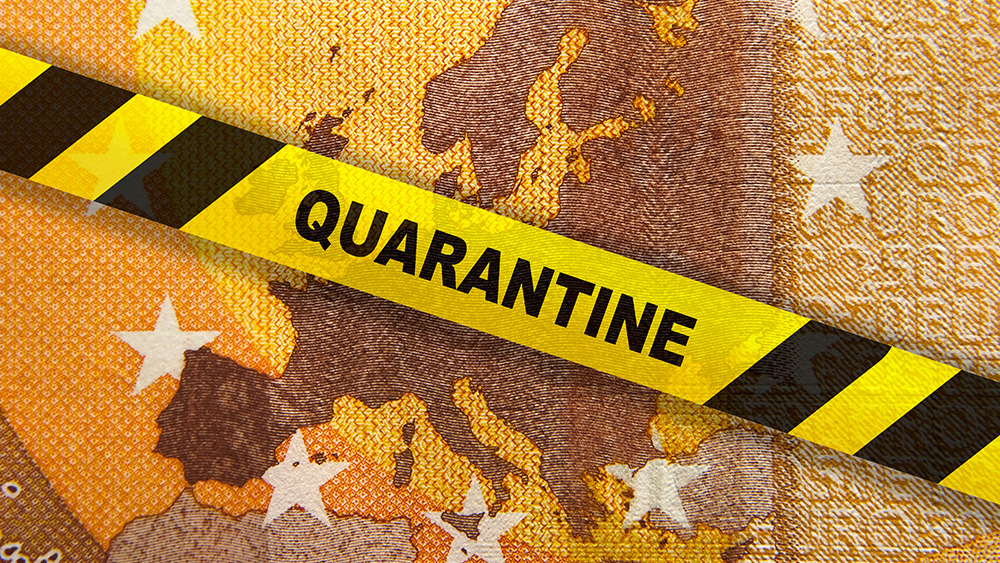
Advertisement
The European Commission, the executive branch of the European Union, is planning to close its borders with the rest of the world for a whole month, in a statement released Monday.
Under the proposal, which needs the approval of all member states on Tuesday, all non-EU citizens will be barred from entering any country within the Schengen Area’s border-free travel region for the next 30 days.
The Schengen Area is a territory inside the EU that allows people to move freely throughout each of the member states. The area includes 22 members of the European Union (excluding Romania, Ireland, Cyprus, Croatia and Bulgaria) as well as four non-EU nations: Switzerland, Norway, Liechtenstein and Iceland.
The commission’s proposal will also cover Romania, Cyprus, Croatia and Bulgaria. Ireland, which is part of the EU but not part of the Schengen Area, has not announced any plans to block international travel. However, an official stated that Ireland and the United Kingdom — which just recently left the European Union — are “encouraged to align” with the EU.
This comes as the World Health Organization reports 167,511 confirmed COVID-19 cases, including 6,602 deaths as of press time. Nearly a third of all known cases now come from Europe. (Related: WHO: Europe now the EPICENTER of the coronavirus pandemic.)
“The less travel, the more we can contain the virus. Therefore…I propose to the heads of state and government to introduce temporary restriction on non-essential travel to the EU,” said European Commission President Ursula von der Leyen in a statement. “These travel restrictions should be in place for an initial period of 30 days, but can be prolonged as necessary.”
The commission’s proposal guarantees exemptions for diplomats, long-term EU residents, family members of EU nationals and doctors and researchers working to study and contain the pandemic.
The leaders of the European Union will discuss the European Commission’s proposal via video conference on Tuesday. While individual EU states have implemented different protocols to fight back against the spread of the coronavirus, the EU as a whole hasn’t been able to come up with a coherent response to the crisis.
https://twitter.com/EU_Commission/status/1239520473244991489
European countries ramping up anti-COVID-19 efforts
Different EU countries have imposed border restrictions in varying degrees.
Italy has announced a national lockdown, effectively blocking all movement into or out of the country as well as shutting down most private and public institutions, except for essential services such as grocery stores and pharmacies. The country even canceled masses. Anyone who wants to travel needs special approval from the police. Italy has the second-highest number of confirmed cases and deaths due to COVID-19. As of press time, they have 27,980 confirmed cases. They also have 2,158 deaths, with 349 of those occurring in the past day. The country is struggling so much that COVID-19 patients over 80 or in poor health will be denied access to intensive care services, which, in effect, leaves them to die.
Spain, the second hardest-hit country in Europe, had recently announced tighter restrictions on movement as part of their two-week state of emergency. This isn’t a total lockdown, as people are still allowed to leave their homes to commute to work, buy food and medicines, to go to the hospital or the bank and take trips to take care of young or elderly relatives. The country also closed down all restaurants, bars, hotels and educational institutions nationwide. Any non-essential retail outlets have also been temporarily shut down. The country has, as of writing, 9,942 confirmed coronavirus cases, including 342 deaths and 530 recoveries.
Angela Merkel, Chancellor of Germany, has continually insisted on not fully closing the country’s borders. However, Europe’s third hardest-hit country has put forward temporary controls on its land borders with France, Denmark, Switzerland, Austria and Luxembourg. Furthermore, the Czech Republic, Poland and Denmark have closed their side of the border with Germany. All “non-essential” establishments in the country have also been closed, including shops, bars, sporting venues and religious facilities like churches and mosques. Groceries and pharmacies remain open and Merkel has asked Germans to “refrain from unnecessary travel abroad.” Germany has 7,272 cases, including 17 deaths and 67 recoveries.
France, the fourth hardest-hit country in Europe, recently announced a 15-day national lockdown to curb the spread of COVID-19 in their country. In a televised address, President Emmanuel Macron said that the country was at war with the coronavirus and that “Never before in history has France had to take such exceptional measures in a time of peace. You will no longer be able to see your loved ones… or continue your daily routine.” The lockdown will begin at noon on Tuesday and 100,000 police officers will be mobilized to set up fixed checkpoints all over the country to enforce it. They will be empowered to give out fines of up to 135 Euros ($150) to people who move without an exemption. These exemptions will be for trips to grocery stores, pharmacies and workplaces. The country has 6,633 cases, including 148 deaths, 12 recoveries, and over half of their COVID-19 patients in intensive care are under 60.
An official working in the European Commission said that, if Von der Leyen’s proposal to control the EU’s external borders pushes through, it could make all intra-Schengen restrictions unnecessary.
Sources include:
WHO.int [PDF]
Advertisement
Advertisements
















